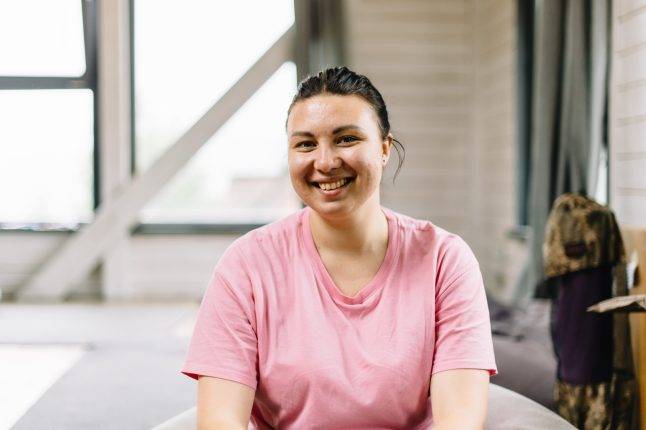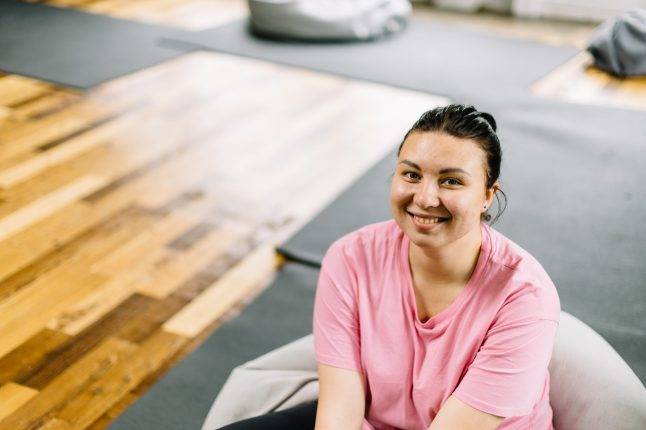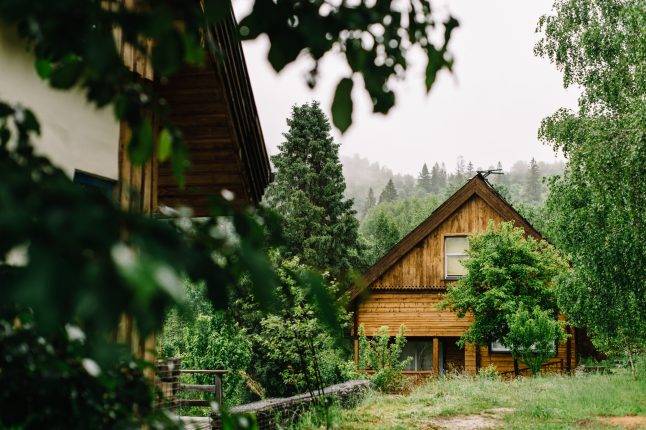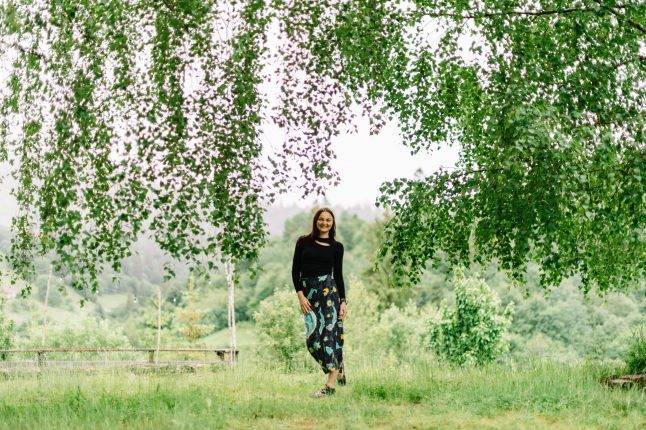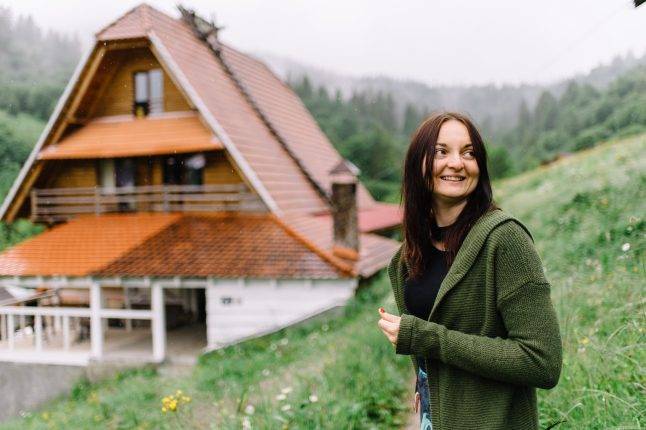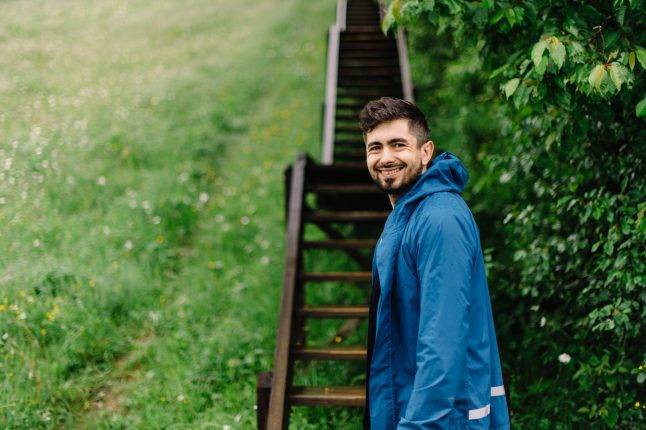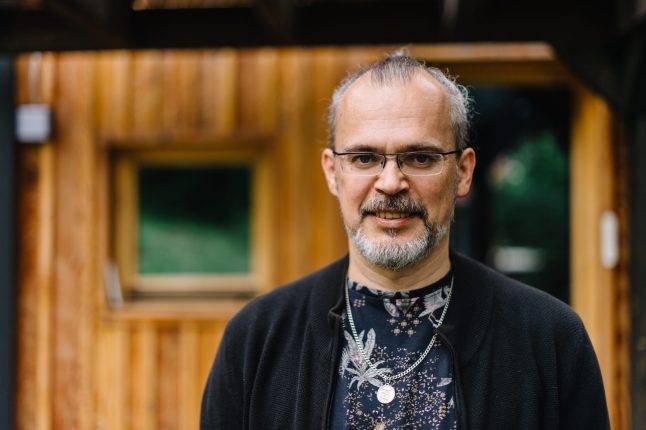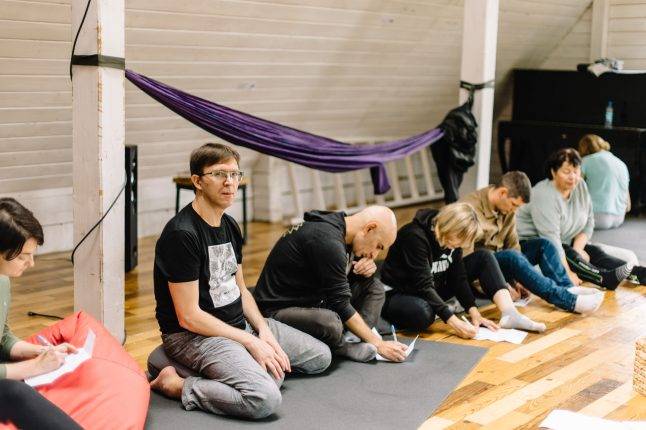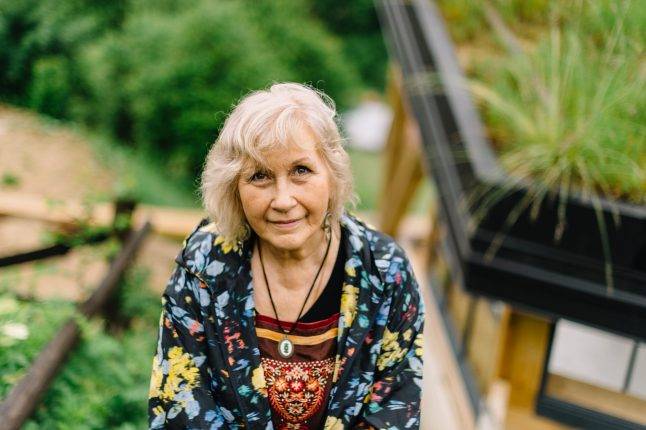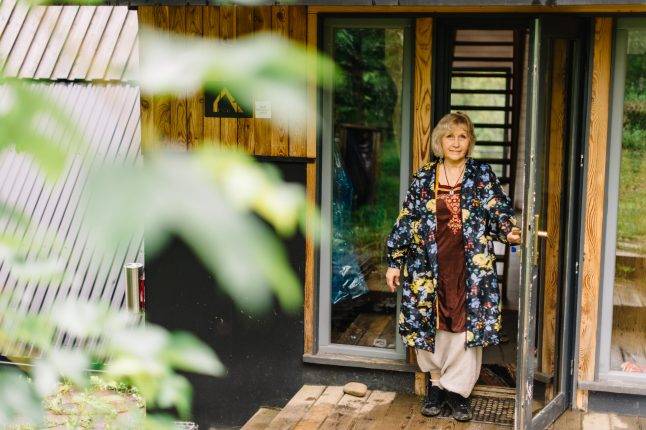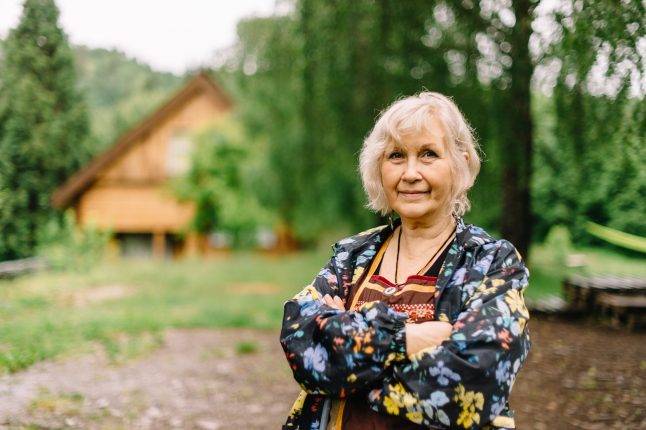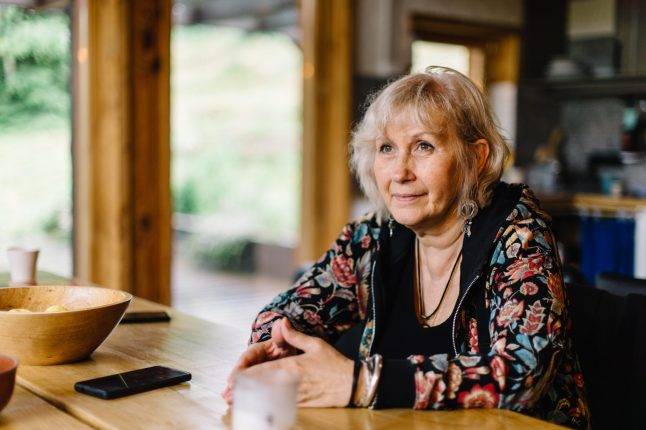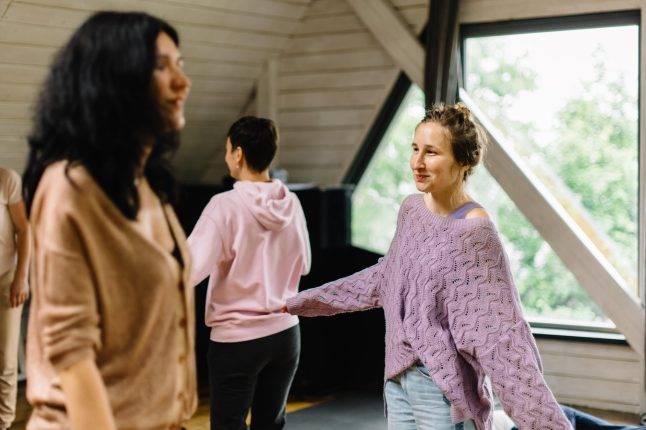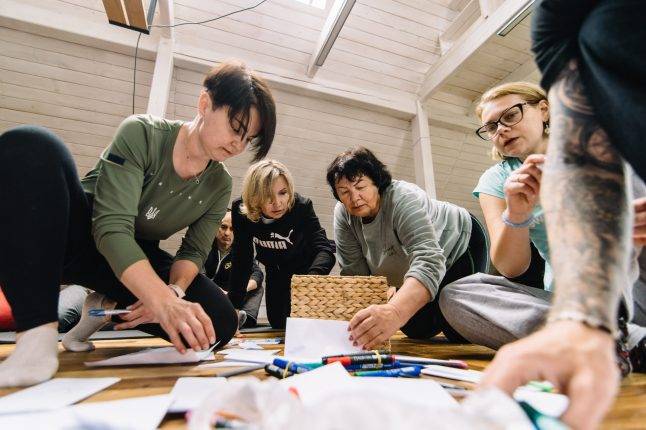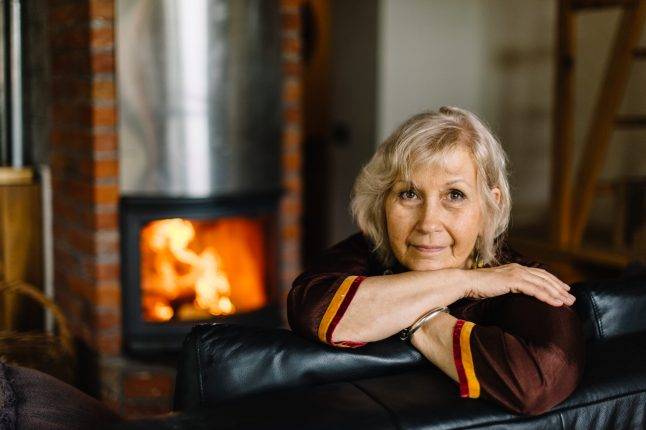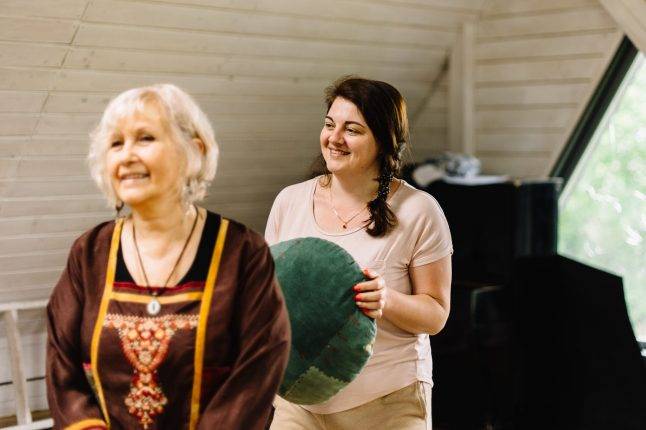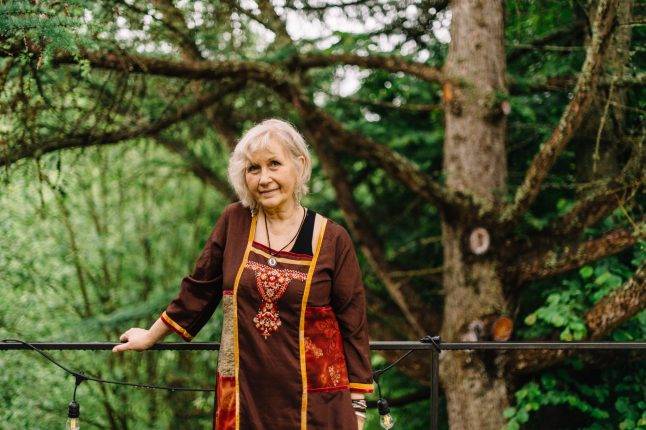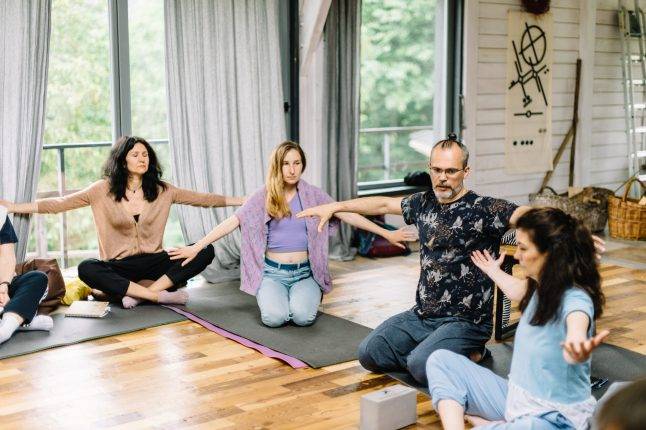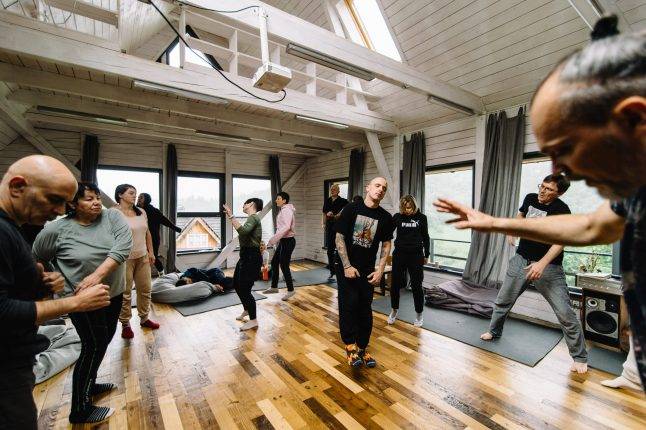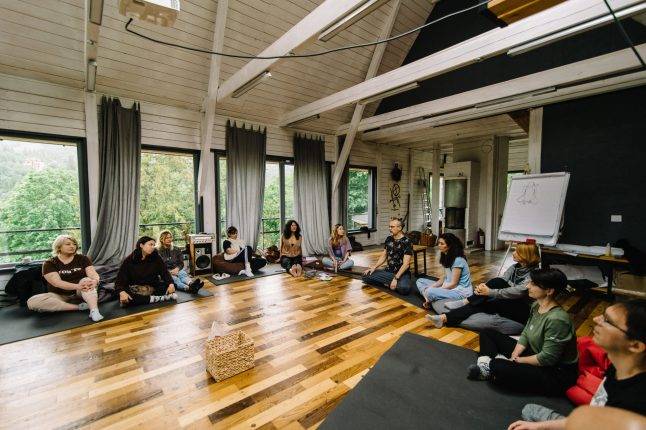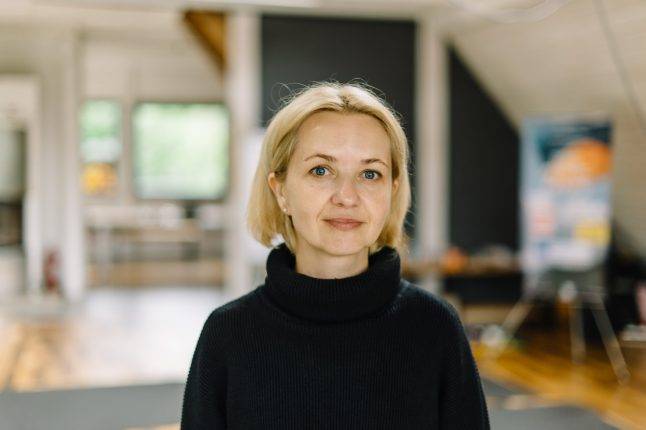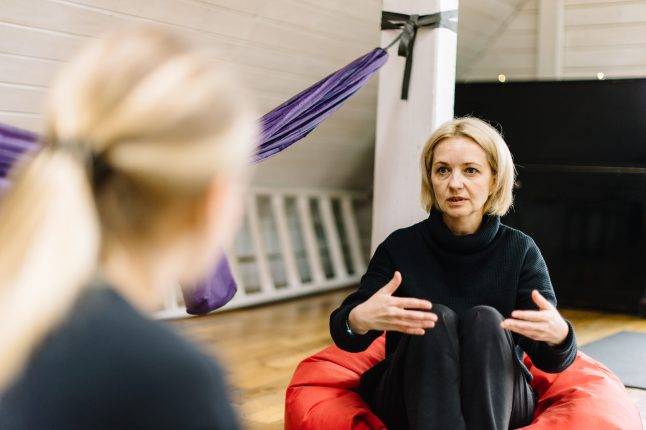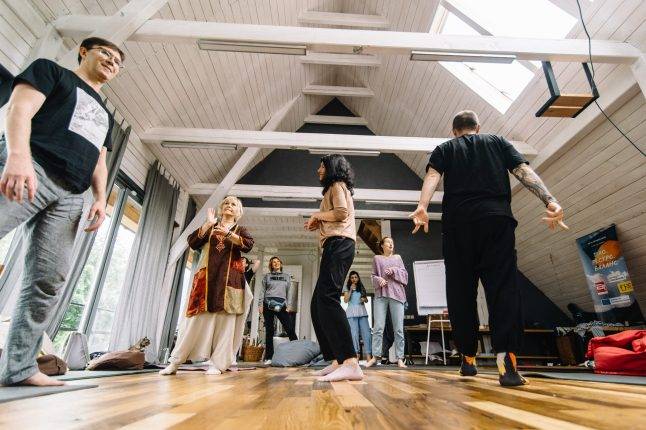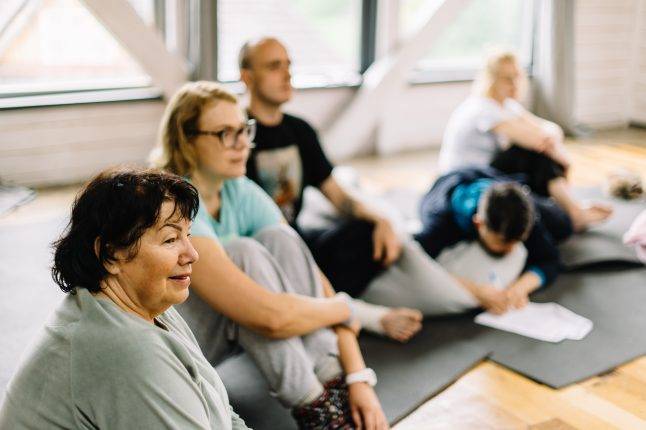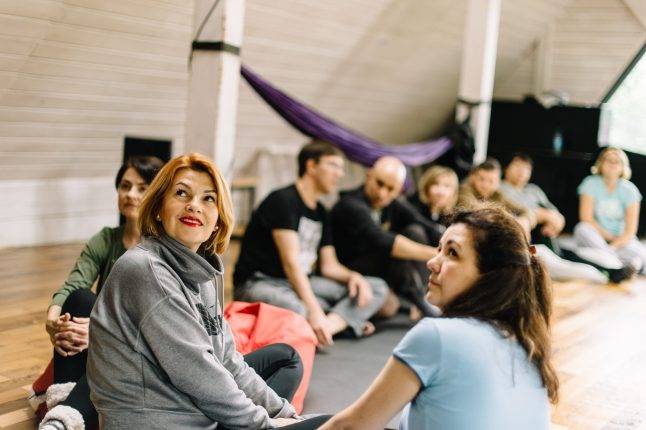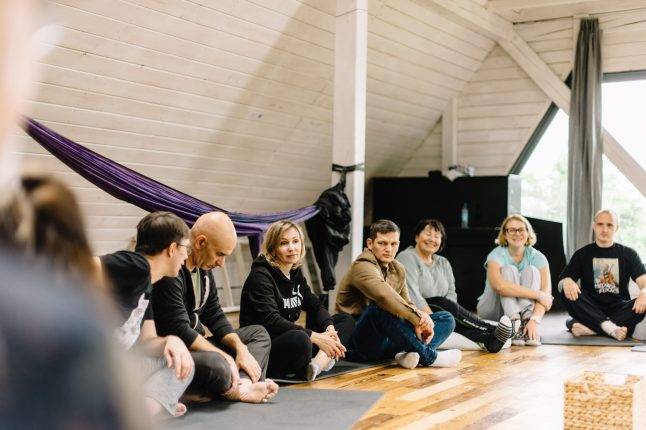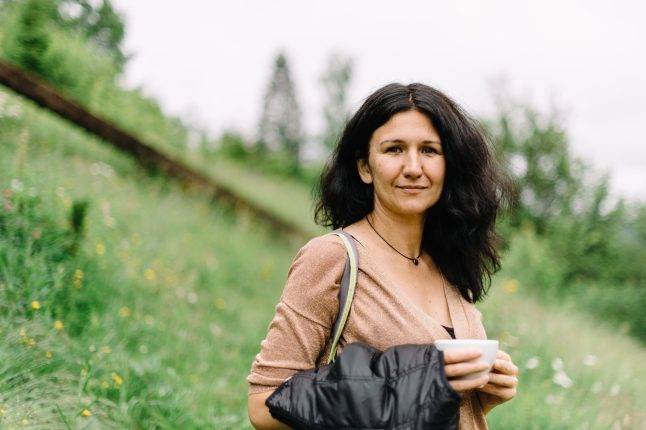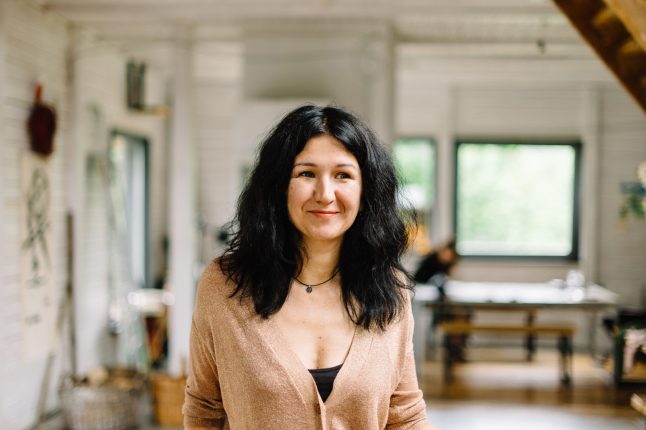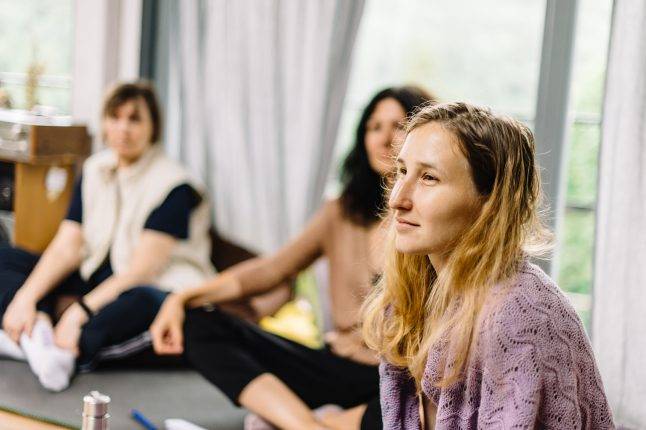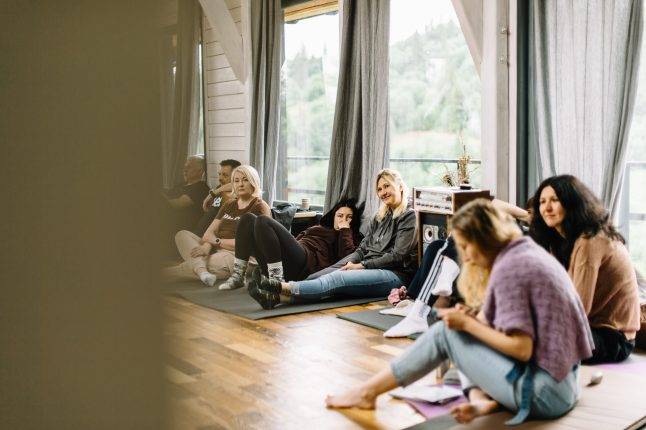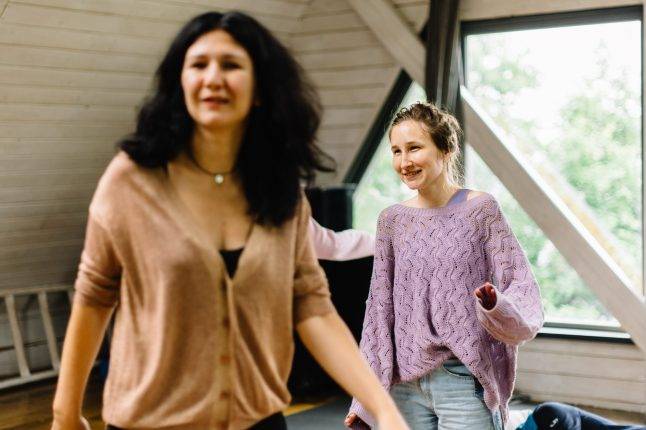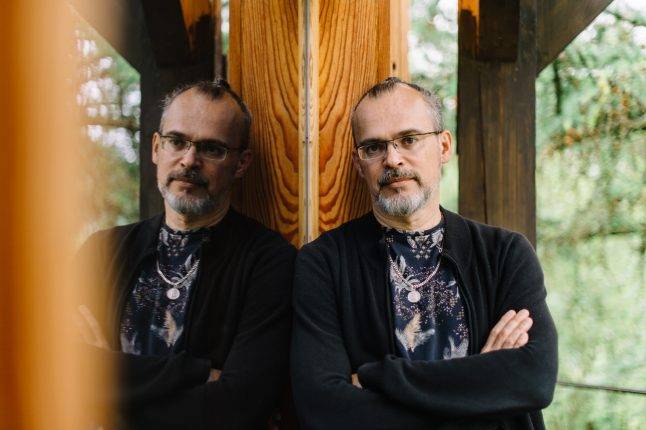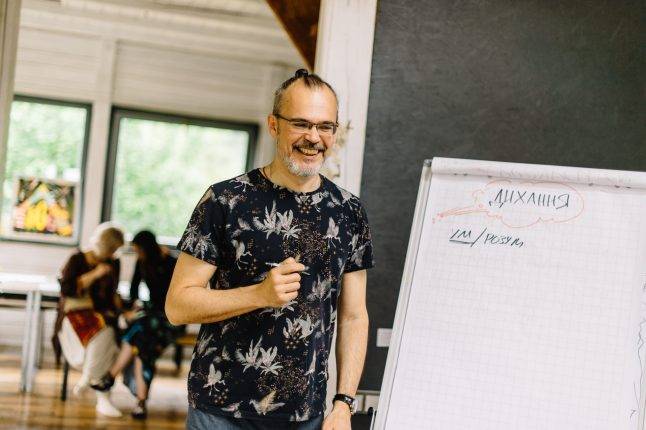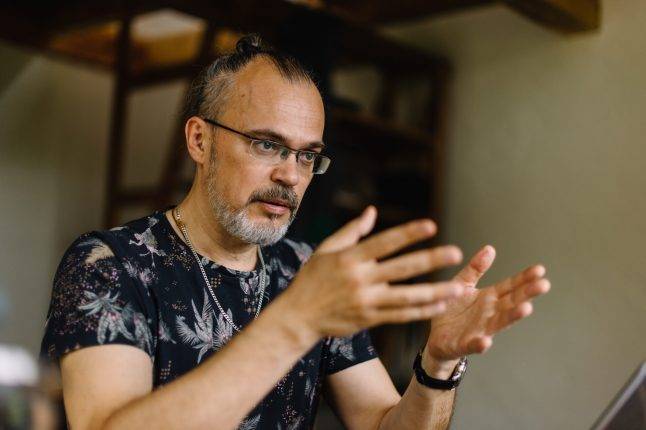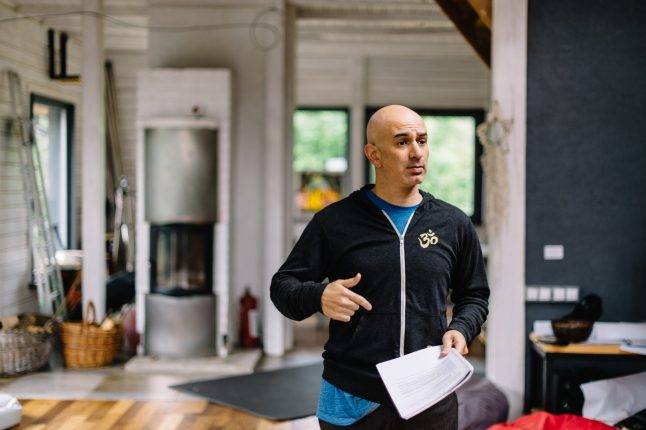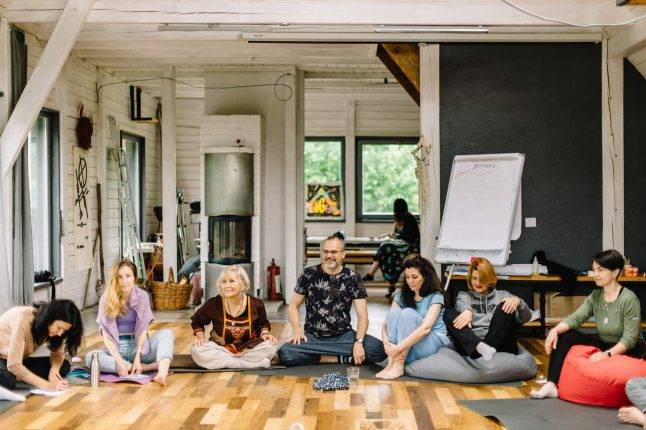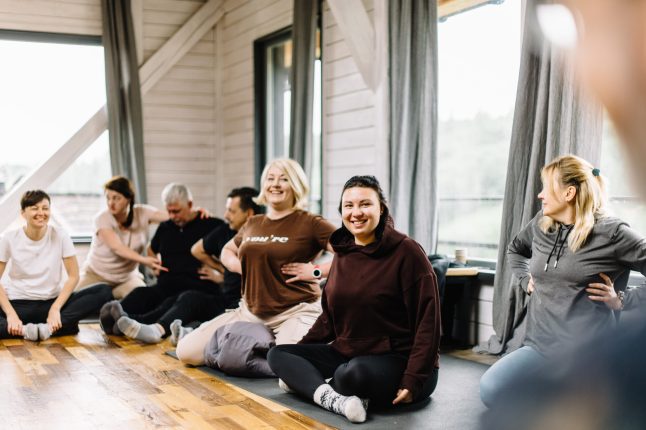
‘BODY. RESOURCE. BALANCE’ – helping Ukrainians to reset mind and body
27/07/2023
Mindfulness, work with the body and breathing techniques are among the practices mastered by participants of the “BODY. RESOURCE. BALANCE” retreat, held on 13-19 June in a comfortable residence located in the Ukrainian Carpathians. The participants included psychologists, volunteers, journalists and civic activists involved in projects for war veterans and in need of a mental reset. The workshop was led by three trainers from the AHALAR centre – Viktoriia Solonitsyna, Yurii Trokhymenko, and Yurii Usovych.
Antonina Kartasheva, a war correspondent, hasn’t taken a holiday since the start of Russia’s full-scale war against Ukraine last February. It was the psychologically exhausting nature of her work that spurred her to apply for the “BODY. RESOURCE. BALANCE” retreat in the picturesque Carpathians.
“In my everyday life, I worked hard and pursued a lot of projects. And now I understand more clearly why I did this. I have a lot of questions related to my future activities after the retreat. Do I want to continue my current work mode or would I like to change something? It seems as if I came back to the state I had before the war. This is a big plus,” the correspondent says.
Antonina falls under the category of helpers – people who help other people and need a mental reset.
The workshop for helpers is conducted by trainers from AHALAR – a humanistic technologies centre. AHALAR develops and implements a programme that allows people to change themselves and the situation in their local communities. Its main objective is to contribute to a harmonious, stable, and democratic society in Ukraine. AHALAR is a co-founding member organisation of the Educational Human Rights House Chernihiv.
The organisation supports Ukrainian helpers, helping them to prevent or recover from professional burnout and continue to carry out their important work.
The events of 2022 made a lot of people revise their priorities. For example, creative professionals from a Kharkiv theatre now help to evacuate people in hot spots under heavy enemy fire. Not surprisingly, the demand for psychological support has drastically increased.
“After the war started, up to 250 people applied for the 16 places on the retreat. We extended the list of categories. We started to invite human rights activists and helpers – people that work with internally displaced persons or soldiers. They help other people, but they need help themselves. And our mission was to help such people,” says the programme coordinator and co-founder of AHALAR, Viktoriia Solonitsyna.
In 2022, AHALAR received an emergency institutional grant from the Human Rights House Foundation under the framework of STRONG Civil Society project, which was implemented with the financial support of the European Union.
In April 2023, AHALAR announced the launch of a new phase of the project “Work without exhaustion –strengthening the resilience and effectiveness of the Ukrainian civil society actors”, aimed at helping helpers. The new phase included several activities, including the “BODY. RESOURCE. BALANCE” retreat, which was held in June in the village of Slavske in the Lviv region.
At the same time, in May-September this year, psychological consultations are being provided to civil society representatives and their family members, together with an online course, “The ABCs of Self-Regulation”. The course includes the two modules: “Mindfulness practices for civil society representatives affected by the war” and “Breathing techniques to strengthen resilience and prevent emotional burnout”.
This new initiative is being supported within the “Emergency Support Ukraine” (ESU) regional project / “Resilience” programme, which provides opportunities for emergency support for Ukrainian civil society and independent media in the wake of the full-scale Russian invasion. ESU is funded by the European Union and implemented by an ERIM-led coalition of partners including the Human Rights House Foundation.
Last year, AHALAR also held a retreat for the families of people who died during the war.
“The Vinnytsia City Council asked us to organise the retreat. We understood that these retreats help people to strengthen their mental health and resources. We believe that a trauma is not an event, but our attitude and emotional response to the event. At our retreats, we talk about values that help people to live a meaningful life,” says Viktoriia Solonitsyna.
The risk of burnout
Olena is the director of an inclusive resource centre for children with special needs. She also provides psychological support to soldiers and their families. At the retreat, she is an assistant trainer. She says that this year’s programme is the most emotional, since it involves people with challenging life stories.
Olena says mental health issues are not well covered in Ukraine, and not everyone can identify emotional burnout. She adds that all negative emotions should be talked away, because they can cause depression that affects the quality of life. Young people are now beginning to understand the vital role of psychologists, but older people are often afraid of seeking help.
“We know what we should do when we have a headache. But when we are exhausted, tired, or annoyed, when we do not want anything, when we do not want to move ahead, and when we don’t feel happy – we don’t know what we should do. We suppress this and continue to live in an exhausted state. And such retreats help people to discover themselves, come back to themselves, and listen to and help themselves,” the psychologist says.
Olena underlines that everyone in Ukraine needs psychological support today, with a particular focus on soldiers.
“Great support should be provided for soldiers, since they lay down their life and sacrifice their health. They sacrifice a lot of things, so, now we have to sacrifice something for them,” Olena says.
Work with resources
Each participant found about the retreat on the Internet or from their acquaintances. However, prior to the retreat, not all the participants fully understood the value of practices offered by the programme’s trainers. For example, journalist Antonina Kartasheva wasn’t confident of the effectiveness of the practices, but was quickly convinced.
“At first, the practices seemed to be children’s games for me. Why do I have to shake my hands for five minutes? But after I exercised these practices, I had new feelings! I understood that I needed to take a break from my work. Now, I’m taking a new lease of life. I thought that I would become a new person, but in fact, I came back to myself,” Antonina Kartasheva says.
Tetiana Kolosova, a private psychotherapist from Cherkasy, also decided to use the opportunity to reset, after dealing with a growing number of complicated cases in her practice, caused by the war.
“This is a body-oriented retreat and is focused on self-care. The participants learn breathing techniques, body exercises, and orientations, which they should focus on to preserve their physical and emotional resources for the longer term. We had an interesting practice: we brought seven flavours to our class. Then we had to identify them blindfolded and to choose the best flavour for ourselves. We learned how to work with resources: how to use them for renovation or preserving energy and mental strength. It was new for me that you can just bring to your office your favourite flavours and feel inspired and renovated in five to seven minutes,” Tetiana says.
The initiative’s relevance during the war
The programme is adapted to the needs of the participants during the retreat. This helps to ensure the maximum effect.
“We proposed to participants to bring something valuable for them and to put it into a symbolic circle. Valuable things may be money, photos, or mementos. One of the participants said she was an internally displaced person for the second time and that material things were not valuable for her. So, she put her memories into the circle. Another participant put their key from their apartment in Luhansk. And this is very interesting, because through this simple exercise, the participants can reflect on their values,” Viktoriia Solonitsyna explains.
The organisers say that they will continue to hold such retreats. Their key mission is to provide a safe space where people are not judged and feel safe. The trainers are convinced that everything is interrelated: the body, emotions, and the soul. So, the participants are invited to join body movement exercises and game practices, since this is the best way to generate happiness.
“Now, our partners from other countries are also interested in our programme,” says Viktoriia Solonitsyna. “They ask us to share our experience of working with internally displaced persons. And we really can share our valuable experience: AHALAR’s trainers have learned special breathing techniques from US experts, which can help to deal with trauma using the body.”
Foreign experts also join the project as volunteers. Morning dynamic meditation sessions were led by Michael, a former US soldier. Psychologists from the Norwegian organisation “Mental Health and Human Rights Info”, a member organisation of the Human Rights House Oslo, also joined the project as trainers. Moreover, AHALAR provides individual support to the participants of a retreat after its completion.
The participants develop emotional and physical intelligence. Gaining unique experience, people want to come back the next year to reset mentally and renovate.
“One of our participants says that she comes here to have a good weep. This can happen because we unblock our mind and body. Each new retreat provides new knowledge for participants. You come back as a renovated person: each time you gain new experience and new perception of the world,” Yurii Trokhymenko concludes.
Author: Yevheniia Pavlova
Article published in Ukrainian by Susidy.City
Stories
-
Katarina Mathernova: If Ukraine had a human face and a human spirit, it would be 10-year-old Roman Oleksiv
-
A regional mission to drive social entrepreneurship: the story of Ksenia Kosukha
-
EU restores safe water supply for 100,000 Ukrainians affected by war
-
Promoting IT during the war: Lviv IT cluster and how EU4Digital helps
-
Frontline digitalisation: Kharkiv IT Cluster collaborations
-
How EU4Youth is driving opportunity and success among young Ukrainians
